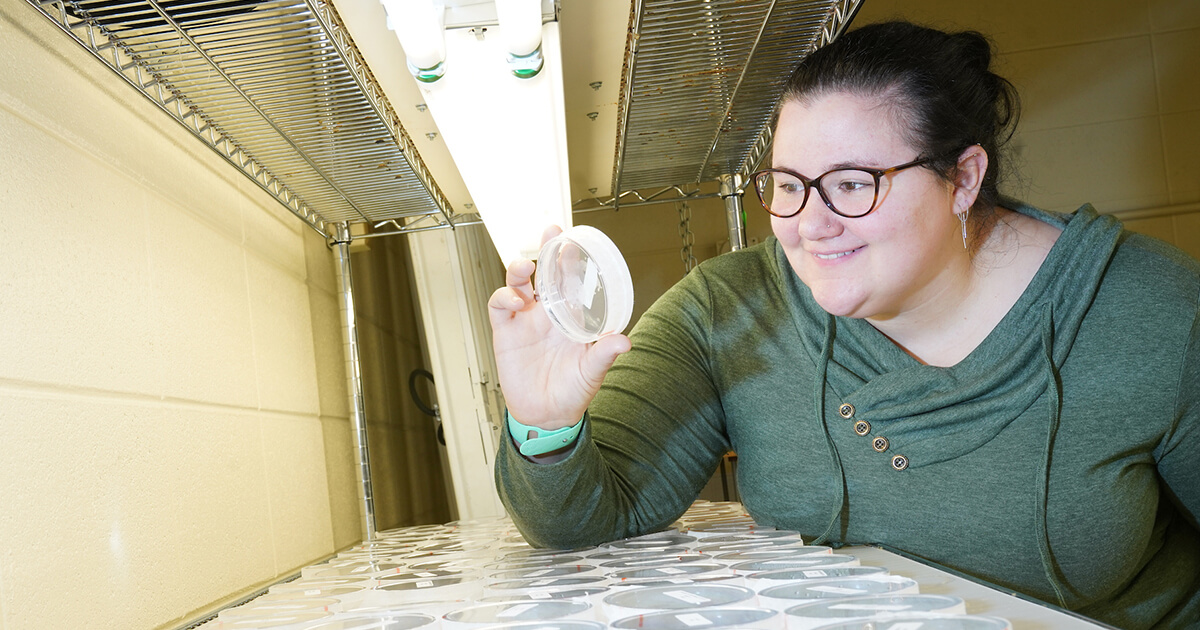Plant science focus makes Purdue ideal for grad student’s research
"I love trying to figure out things that nobody knows,” said Rachel McCoy, a doctoral candidate in Horticulture and Landscape Architecture who will defend her dissertation next month.
McCoy’s search for a postdoc is underway as she works toward her goal of becoming a professor at a small university.
At the University of Evansville, an undergraduate ethnobotany course opened McCoy’s eyes to the variety of ways people interact with plants. After earning an undergraduate degree in biology, McCoy was accepted into the Purdue University Interdisciplinary Life Science Program (PULSe).
McCoy appreciated opportunities to rotate through labs to experience different aspects of plant science. “The interdisciplinary nature of plant science at Purdue makes it a great place to study.”
In 2016, she joined the lab of Joshua Widhalm, assistant professor of horticulture. “He’s always supportive of my goals,” said McCoy. “My advisor and I have been working together for a long time, so we communicate well, which really is important in graduate research.”
The Widhalm lab focuses on plant allelochemicals, natural products released into the environment that influence the growth and development of other species.
Phylloquinone is needed by humans as vitamin K and used by plants for photosynthesis. “We need to get phylloquinone from our diets, from leafy greens,” explained McCoy. “We mostly understand how plants use it in photosynthesis, but we don’t fully understand how plants make it.”
McCoy discovered that black walnut trees make juglone, an allelochemical harmful to other plants, using part of the same pathway that plants use to make phylloquinone. Through her research, she hopes to better understand the extent to which the pathway is used to make different compounds.
In spring 2018, McCoy was awarded a prestigious USDA NIFA-AFRI predoctoral fellowship. Purdue’s Graduate Student Senate gave her its 2018 Above and Beyond award for her initiative during two years as senator for Horticulture and Landscape Architecture.
“As grad students, we can get so caught up in our research that we don’t think about what’s going on outside the lab or our department, and I think it’s important that someone is thinking about that,” said McCoy.






